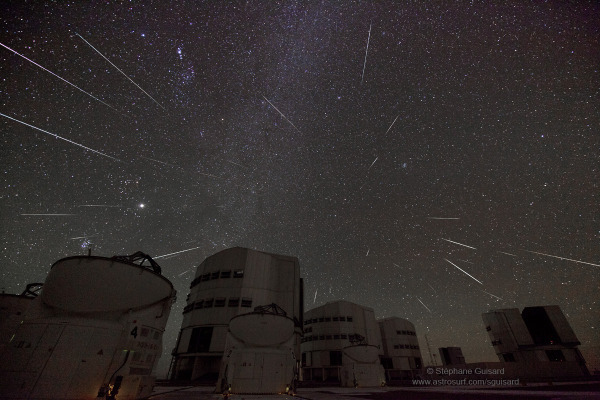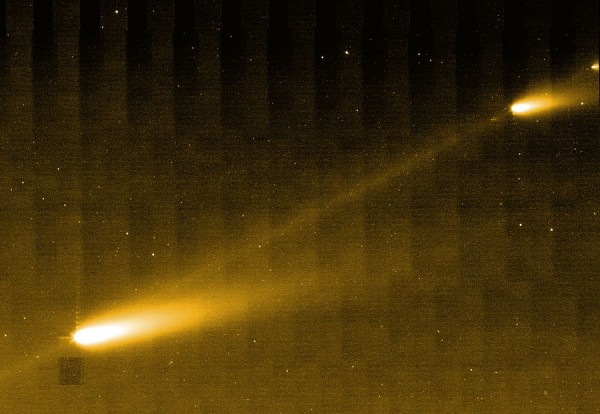“Men of genius are often dull and inert in society; as the blazing meteor, when it descends to earth, is only a stone.” -Henry Wadsworth Longfellow
Sure, sure, and they're not even big, impressive stones. But like any real estate agent will tell you, location is everything.
And when your tiny, pebble-sized stone originates from an asteroid that crosses Earth's orbit and leaves a debris trail behind, that "only a stone" can appear as so much more.
 Image credit: Stéphane Guisard (Los Cielos de America), TWAN, via http://apod.nasa.gov/apod/ap121215.html.
Image credit: Stéphane Guisard (Los Cielos de America), TWAN, via http://apod.nasa.gov/apod/ap121215.html.
This year, the Geminids have the potential to be better than ever; come find out why, and how to catch them this coming weekend!


In your post you mention that the ISS crew will have a great view of these meteorites. Shouldn't they be more concerned about coming into contact with one given the number of particles is increasing every year? What does NASA do to combat an issue like this?
No need to look toward Gemini. The debris hits the earth's atmosphere everywhere, so you can look in any direction (OK, up it should be). It is best to look at about 60 degrees. Then you watch through more atmosphere. You could watch lower, but then the meteors are farther away and need to be brighter to be seen. Looking towards Gemini makes meteors harder to spot because their trails are shorter from that angle.
Bert
The two most overhyped celestial events are meteor showers and comets. 120 meteors per hour sounds impressive but it's one every thirty seconds. Whee! One, two, three....thirty, rinse, repeat. Unless the count is reliably expected to be in the thousands these shouldn't be in the popular media, ever.
Comets are just as bad. Not only did comet ISON fizzle, nobody would have seen it anyway because of its proximity to the sun. Unless it's magnitude zero in a dark sky, like Hale-Bopp in 1997, don't mislead the public.
People go out to see meteor showers and comets, don't see a thing, then we wonder why they don't take science seriously.
I am courious too about the ISS question. Is it any possibility of damage to the station?
Can I get a better view from an airplane?
So who saw any last night? I watched off and on through haze, clouds and fog, never saw a one.
And how about the second night? Anyone see a Geminid?